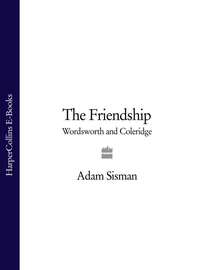Sadece Litres'te okuyun
Kitap dosya olarak indirilemez ancak uygulamamız üzerinden veya online olarak web sitemizden okunabilir.
Kitabı oku: «The Friendship: Wordsworth and Coleridge», sayfa 3
Bir şeyler ters gitti, lütfen daha sonra tekrar deneyin
₺452,76
Türler ve etiketler
Yaş sınırı:
0+Litres'teki yayın tarihi:
28 aralık 2018Hacim:
692 s. 38 illüstrasyonISBN:
9780007368716Telif hakkı:
HarperCollins